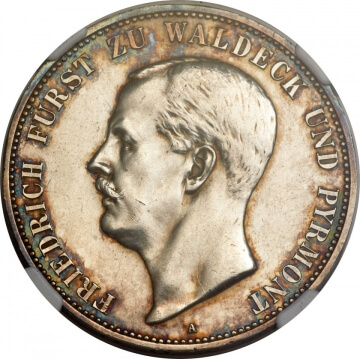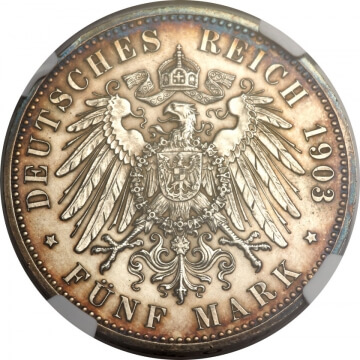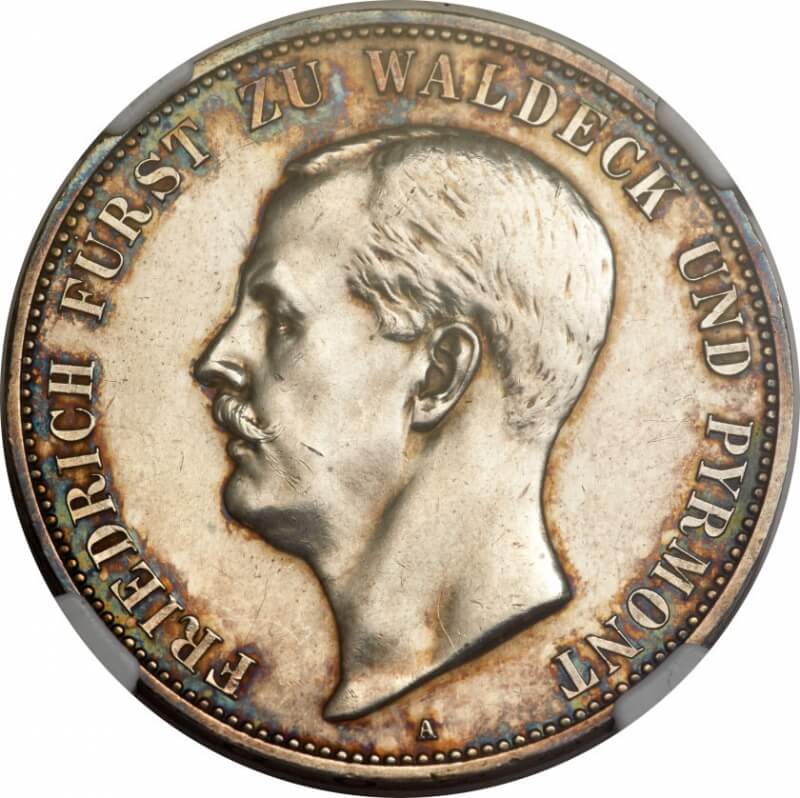**Every day this week we will highlight submissions from the My Coin’s Story Young writing contest. Young Numismatists were asked to write a historical fiction story based on a favorite coin. The winners will be revealed on the blog on Friday, Dec. 19.
Waholek
As the title implies, my stay was to be temporary. Someday I may return
to my homeland, but I will always hope to remain in the greatest country in the
world, with my rescuer and new best friend “ever”. First let me tell
you a bit of how I came to be, and where I was born. My composition is a bit
different than yours, for my molecular structure came from the stars on a
billion year ride on the back of a comet. For I am a coin made of copper. I was
mined in what today is Germany. I was not king of the metals but certainly was
given great value and adulation. Through princely recognition my life in its
present form began in 1730, I would pass through many owners, respected, and
treated with care. Many a loaf of bread would I secure, and once even the favors
of a fair maiden. The Church collection plate welcomed me, as the Smitty and
tavern keeper did. I was an ungainly fellow (see my portrait below) only 23.50
mm containing 3.36g copper with a market value of the time as 6 Pfennig,
without the good looks or value of my silver and gold friends. But my purpose
was fulfilled more often than theirs. Everyone spent Pfennig’s. My little
brother four Pfennig was more common, and you could see the family resemblance.
One day after a transaction the town cooper received me for a new cask.
He placed me in a leather sack with other coins concealing us below the floor
boards of his cooperage. We were in the Principality of Waldek. To be exact
this Principality was ruled by Karl August Friedrich, he ruled from 1728 to 1763
ordering my birth. The surrounding principalities in this part of Germany
included Hesse-Kassel. Karl August Friedrich held a contingent of highly
trained soldiers at the ready for hire. I will travel to America with one of
the Grenadiers from Waldek, who received me as a good luck token and keepsake
of his homeland from his grandfather, the cooper of Waldek. When Hans departs
Waldek he will be told along with his comrades that his mission is to protect
the English Kings subjects from hostile natives in the outer lands. New York
was our destination. Traveling south to Trenton and to Philadelphia, my loss
and entombment for over two centuries would occur and finally my recovery.
Being witness to the birth of a nation was worth my long, cruel entombment. I
now defer to my recoverer, and current owner to whom I am forever grateful.
Knowing I am favored and loved, though worn and environmentally damaged I give
thanks to my existence.
UNBELIEVABLE! One of the many words to describe a find of Biblical
proportion. The historical implication my new best friend from Germany has
presented in the previous paragraph is more than fantasy, but a high degree
reality. A coin can be the key to a book of facts and imagination. This coin
has unlocked both. In the introductory
we have met our imaginary friend who is real. An oxymoron? Yes! But what coin
collector or Numismatist at one time or another hasn’t dwelled on the travels
of a coin. The coin of our subject has the provenance of being attached to a
small principality that directly provided the mercenary troops to quell
American unrest. Our supposition of this coins history has an extremely high
degree of likelihood. So let us now review the history uncovered, and the subject
of our story’s place in that history.
On a cool overcast, rainy day in
Northeast Philadelphia, I found myself in the Church yard cemetery of
historical All Saints Episcopal Church. We were there to use some ground
penetrating radar to locate the position of the original church structure, and
free range metal detecting on the church property. I took refuge in the tree
line and noticed an up rooted tree from the previous winters heavy and
continuous snow storms. The area was yielding signals indicating trash, when
the tone changed and a recovery of a zinc Lincoln cent was made. I thought to
myself “Its going to be one of
those days”, then a higher pitch sounded and my needle jumped as it
indicated a silver half dollar tone. To my surprise and disappointment the
target was about the size of quarter, and as I gently turned my trowel I could
see from the side it was very thin. At first examination I thought it to be
silver. Blackish in color but not encrusted. Carefully I protected it in tissue
and a plastic coin tube, continuing to hunt until the rain became too heavy and
could cause damage to my electronic detecting equipment. At home I carefully
took the proper steps for preparing recovered environmentally damaged coins for
identification. Let me note as a numismatist the value of dug copper coins is
not monetary, but in the thrill of the find, and the story some coins can
relate. This gem is a treasure.
Now the rest of the
story……..Colonist’s depended on the coin of the Realm for its commercial
endeavors. Though product and service trade was common it was not always
practical, therefore coins were in
demand. The Spanish Real was welcomed and used frequently in its produced form
and cut into pieces of eight for change. A minor coin such as the six pfennig
piece, particularly from the smallest of the Principalities in Germany probably
was not encountered often, if ever. So how was it this coin came to rest in the
soil of the outskirts, of the home of the first Continental Congress,
Declaration of Independence, home of Benjamin Franklin, in a pre-colonial
church yard?
Germans made up a large portion of
the Colonial population. Pennsylvania being Quaker founded, was extremely
tolerant of all religions. Mennonites of German Swiss ancestry were welcomed by
William Penn, purchasing land in the Lancaster area. Most German immigrants
would stand with the revolutionaries against King George III. Even pacifist’s
like the Quakers and Mennonites who didn’t take up arms contributed in many
other ways. Other Germans, raised and trained in warfare were being paid by
King George to quell and stifle the breath of freedom. Frederick II of Hesse –
Kassel with three regiments at the ready was known for his use, or shall we say
rental of his German troops. Frederick would contribute forces that would make
up 25% of the English Kings total forces
used in the Revolutionary war. Because of their fame and large numbers from
Hesse, all German troops were referred to as Hessians. Of the Princes that
would sign agreements with King George, he himself held the title of, Elector
of Hanover, Germany.
Karl August Friedrich of Waldek
sent a contingent to New York in 1776 under the Hessian General Von Kryphausen.
The garrison was deployed to protect Trenton, New Jersey. On December 26, 1776
Washington, crossed the Delaware river, ambushed and engaged the Hessians at
Trenton. The battle was an American success. Among the 1000 captured Germans
one possibly carried our recovered numismatic treasure. The captured prisoners
were ferried back to Pennsylvania along with their horde of supplies. Marched
to Philadelphia on the only major road at that time called “The Kings
Highway”. Today it is known as Frankford Avenue. The highway connected
Philadelphia with New York. Along the way marching to Philadelphia, was All
Saints Episcopal Church, the location of our Waldek coin recovery. The
prisoners were a propaganda coup for Congress. Recruitment and morale had been
low because of the lack of success until this time. Also, young men were needed
at home to work the farms, plant and harvest the crops the following growing
season, which was about to begin in the next few month’s. Recruitment generated
a swelling of ranks when the German troops were given the option of harsh
prison life or comfortable internment working the Colonial farms until prisoner
trades were engaged or the sesation of hostilities. Most chose farm duty. Some
were sent into Bucks and Lancaster County, while others were engaged on farms
and orchards in the cities northern suburbs which today, includes the All
Saints Episcopal Church property where our story or should we say a coins
sojourn begins.
We can dream of many scenarios, and
conjecture of how the Waldek coin arrived where it was recovered. In fact its
recovery has enriched our knowledge of Colonial history, Geography, ethnic
diversification, military strategy, commerce, and much more. All from one
23.50mm 3.36g copper coin, who spoke to us. Let your coins speak to you, learn
the wonderful things they have to tell, if not just about themselves and their
designer, engravers, but the world that surrounds them.
The End? Or just the beginning of the rest of a coins
sojourn.


